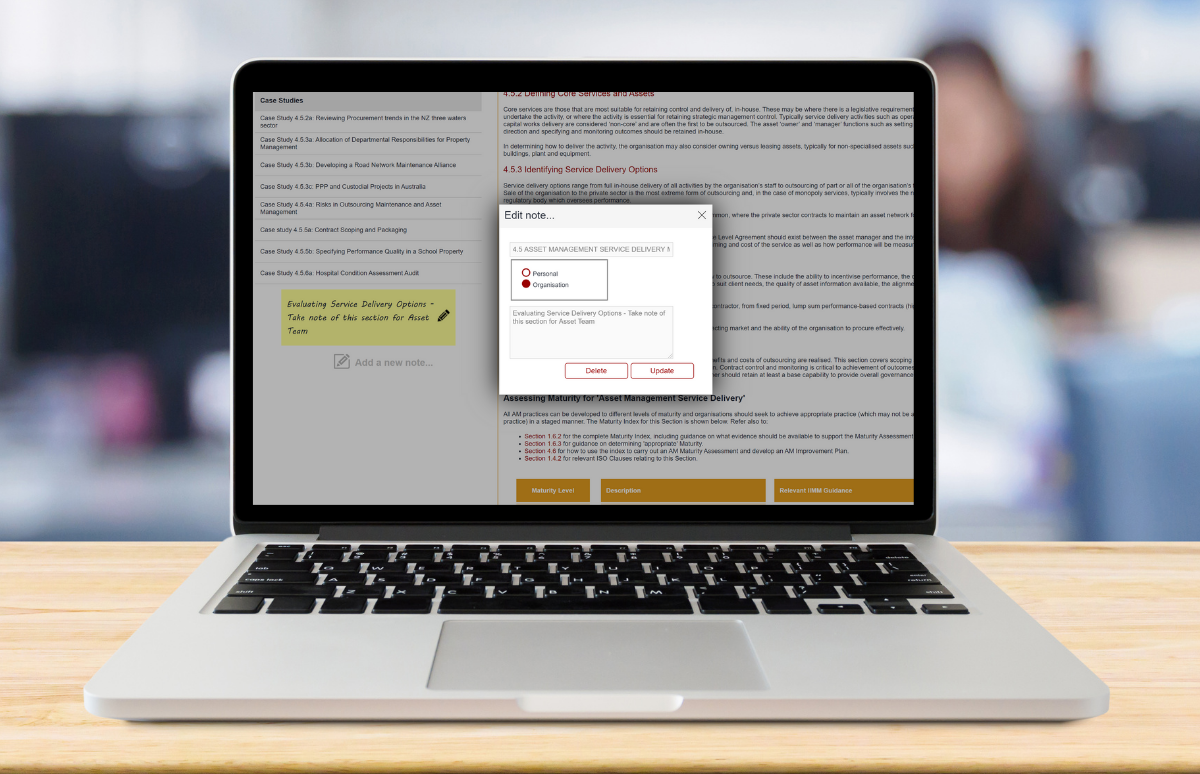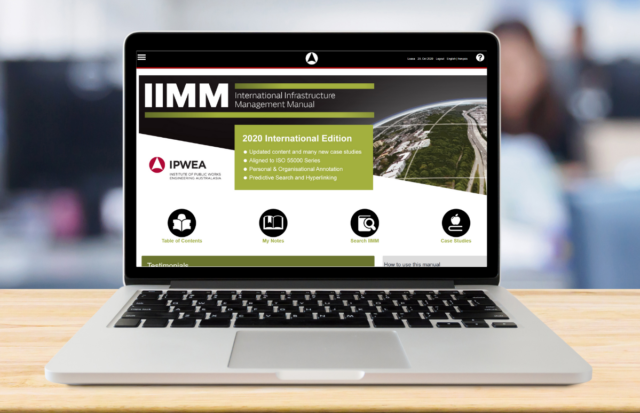IPWEA has launched its globally acclaimed International Infrastructure Management Manual (IIMM) in a comprehensive online program. The IIMM E-Book provides members with an easier, faster, more collaborative way to access the information they need.
A real challenge today is running a business or organisation that embraces technology and uses it to adapt and evolve with an ever-changing world. Digitisation has become increasingly important as organisations have enjoyed the benefits of moving key processes online.
As part of its commitment to deliver new technology initiatives that benefit members, IPWEA is proud to offer the 6th Edition of its globally acclaimed International Infrastructure Management Manual (IIMM) online.
What are the benefits of the online program?
IPWEA has listened to user feedback and created a highly intuitive, searchable, annotatable E-Book with significant advantages over the traditional hard-copy IIMM offering.
An overarching benefit of the online manual is that it gives organisations an unprecedented level of access. Instead of one manual being shared around an organisation, the new subscription-based program allows multiple users across an organisation to access it at any time, with no limitation to the number of users sharing the same manual.
For example, a large organisation can have more than 1,000 users accessing the program simultaneously, thereby greatly enhancing collaboration and integration and speeding up an organisation’s reference to information for their own internal infrastructure or asset management programs.
Created with the low-code development platform Intrexx, the new online program provides members with reassurance they are participating in sustainable business practice, since it replaces the need for a significant number of paper products. Online access also assists user mobility since users can login to the program on any computer, smartphone or tablet device, potentially accessing vital information on the move.
Note-taking is also made easier with an innovative annotation tool that allows users to flag areas of interest with bookmarks and to make Post-It-style notes online, just like they would with a paper manual, but with several key advantages. Instead of requiring a physical transfer between individuals before notes can be read, they can be shared with colleagues across an organisation simply by clicking a box.
Research shows 57 per cent of workers spend up to an hour a day looking for missing documents. But trawling through pages to find the notes users have made is not necessary with the e-book format, since notes are hyperlinked for rapid retrieval.
Further speeding up the time to retrieve information is the intelligently structured content, with executive summaries to be found on the top level of the E-Book.
An intuitive search function that includes predictive text makes finding information easier than ever. Users can easily locate documents, graphs, ISO Standards, topics of interest or one of over 70 new case studies included within the IIMM manual.
What’s new in the manual itself?
New online features aside, the 6th Edition IIMM has been driven largely by the updates to the ISO 55000 Asset Management Standards and features over 70 new case studies in ISO implementation, climate change and resilience, the use of data and technology in Asset Management as well as additional detail on assessing your Asset Management Maturity and developing a strategic approach to asset management.

How do I access the online manual?
For access, members simply choose one of the E-Book subscription options from IPWEA’s website. Options include a low-cost Individual IIMM subscription tailored for students and other individuals or an Organisation IIMM subscription with access to all the other publications in the IPWEA library.
Each subscription option lasts for three years, during which members have access to regular content updates as they become available online.
Alternatively, users can access the IIMM through an IPWEA E-Book Subscription that provides staff 24/7 access to all publications in the IPWEA library.














